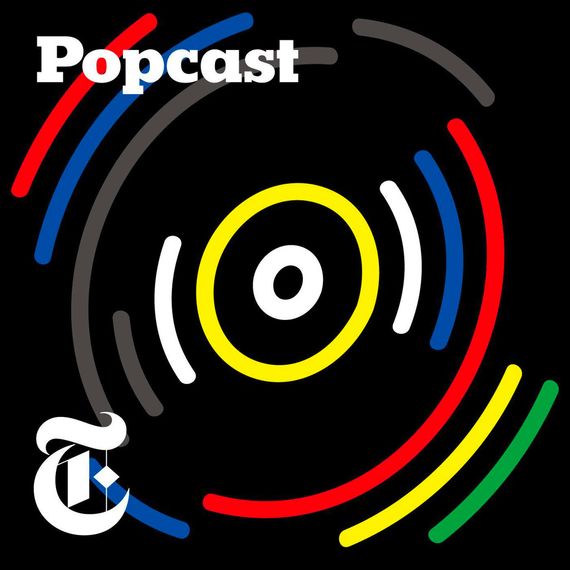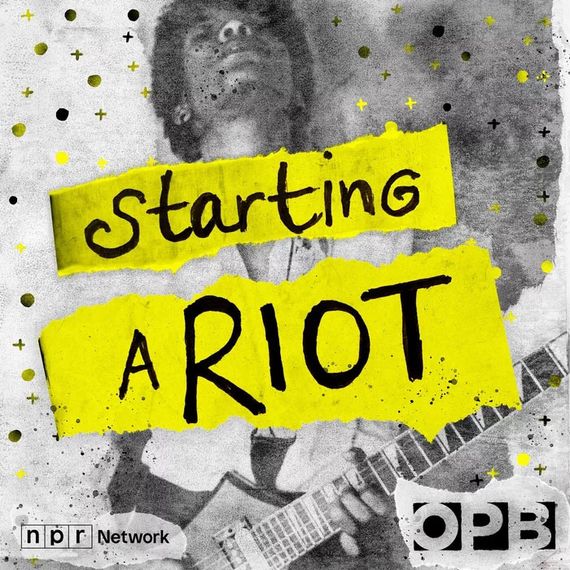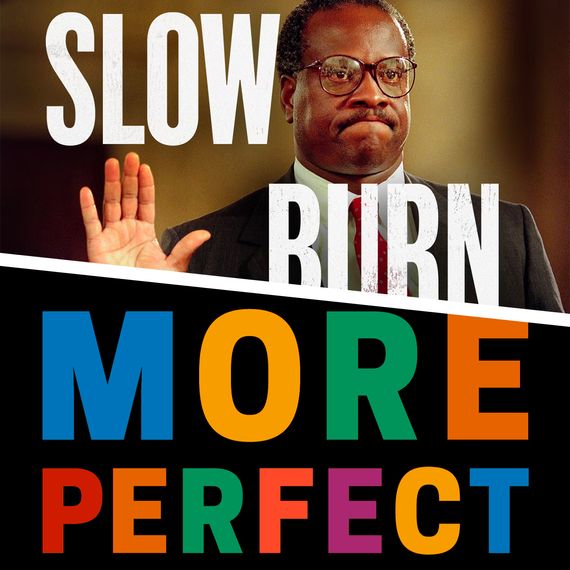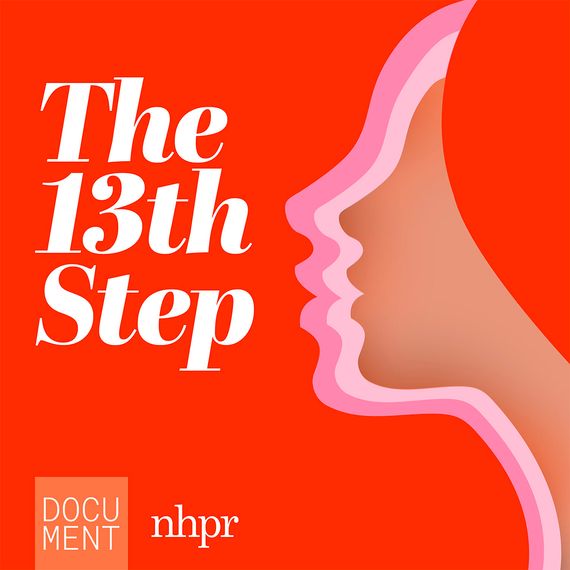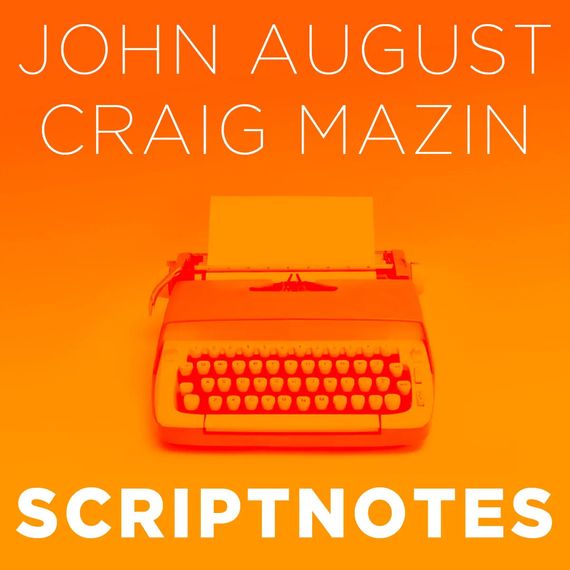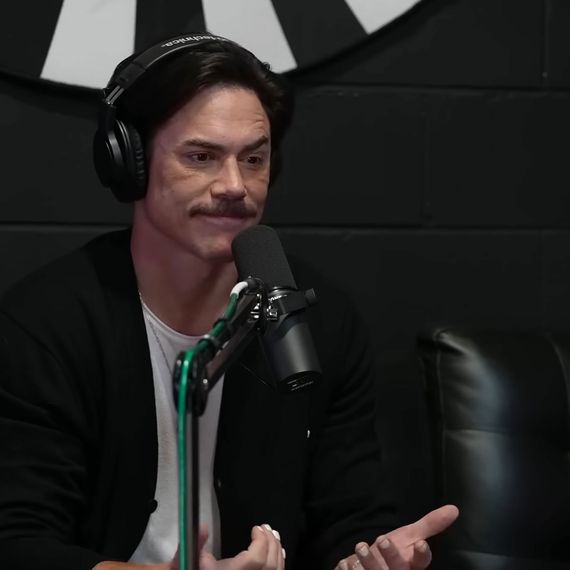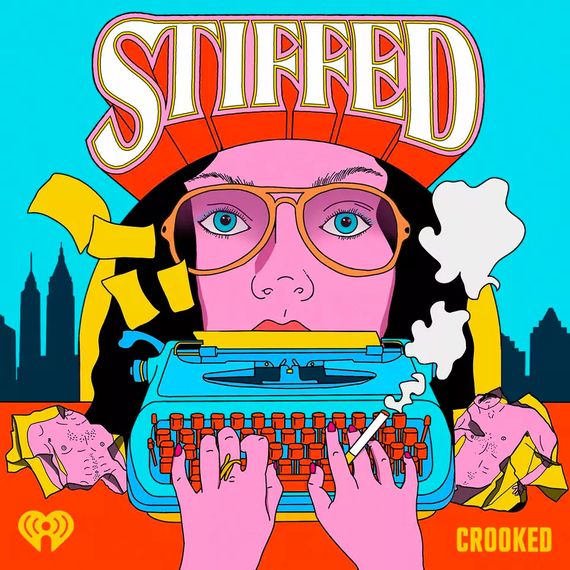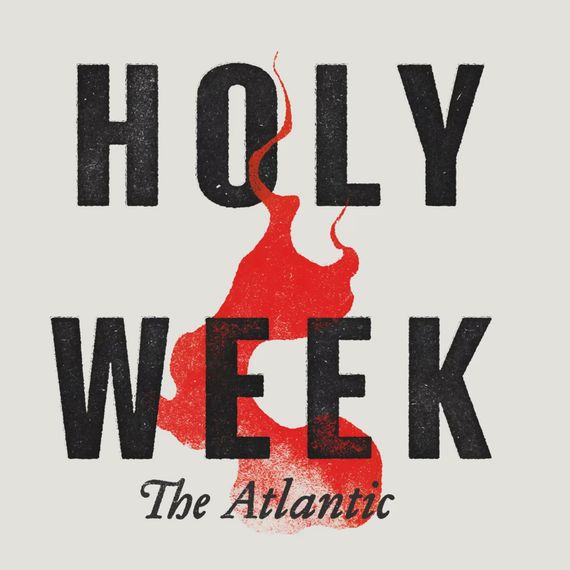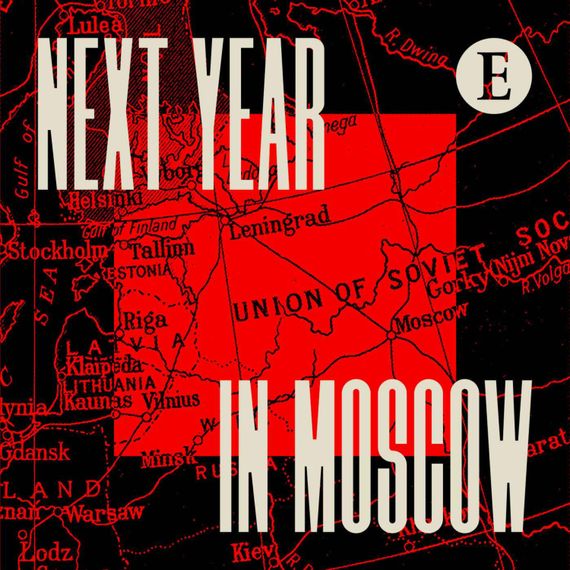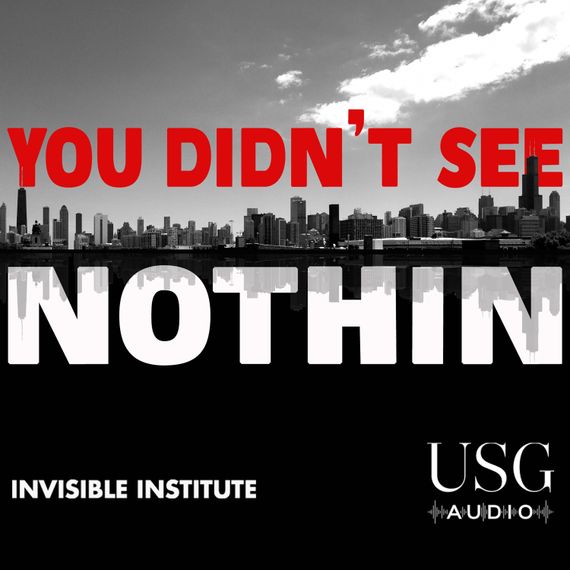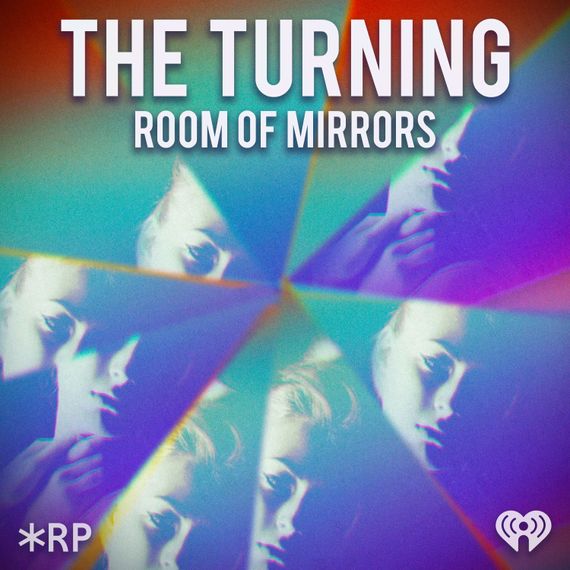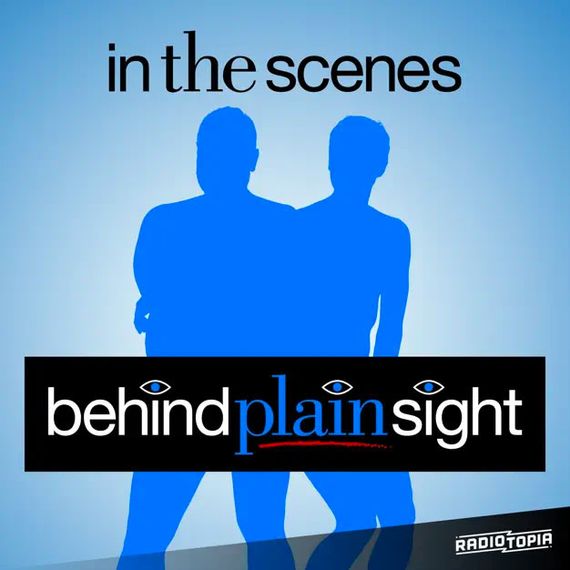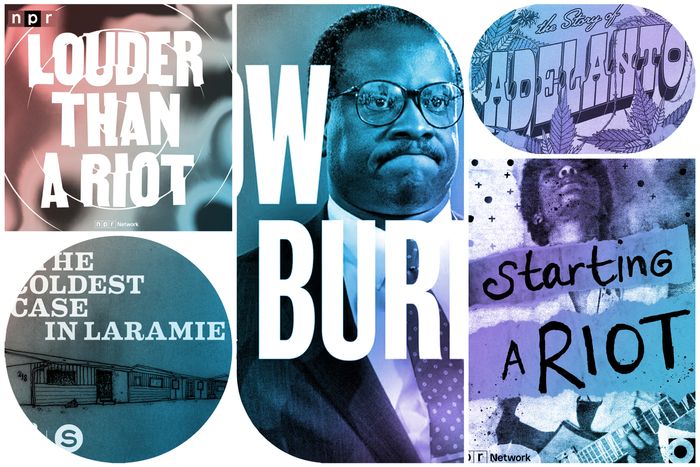
It’s been a pretty rough start to the year for the podcast world. When 2023 began, there were serious anxieties about the state of the biz, and much of those worries ultimately came to be. Layoffs rippled throughout the scene, talk of contractions is now pervasive, and some of the celebrity talent megadeals that defined podcasting over the past few years exploded in very public fashion. In case it wasn’t abundantly clear, the Speculative Podcast Boom is over. But there is the business — and then there’s the actual stuff. And the thing is: There are still really interesting, fun, and memorable podcasts being made by talented teams and individuals, from powerful investigative pieces and portraits of malls to ongoing projects of media critiques that operate at a very high level. We’ll come out of the other end of this industrial slump at some point, but for now, there’s hope.
All podcast picks are listed from newest to oldest.
The Dream: Season 3 (Little Everywhere and Pushkin Industries)
A good three-year gap separates The Dream’s latest season from its last, and host Jane Marie has been put through the wringer over the interim. She’s lost loved ones; her podcast studio suffered tremendously during the pandemic; and she split up with her romantic partner, Dann Gallucci, who had also served as her creative collaborator on the show. The Dream is a show that investigates things like the wellness world and multi-marketing schemes — that is, industries that capitalize on a certain desire for self-actualization within human beings, often in predatory ways. And so when Marie returns for this new season to explore the strange universe of life coaches, she does so in a state where life coaching has never been more appealing to her on a personal level. This vulnerable state of affairs gives The Dream’s third season a distinct edge and makes it one of the more interesting takes on the narrative-documentary format in a while.
Peter and the Acid King(Imagine Audio and iHeartMedia)
Yes, there’s an unsolved murder at the center of Peter and the Acid King. But the podcast recognizes its utilitarian hook and seems to express some ambivalence about having to tangle with the true-crimeyness of its premise. And while the team — which includes the screenwriter Kaitlin Fontana, Hollywood producer Alan Sacks, and the director Penelope Spheeris, who hosts the series — is indeed interested in the mystery, what they mostly want to do is celebrate the life of the titular Peter Ivers and the early-’80s Los Angeles punk scene from which he emerged. A musician and artist, Ivers was an influential underground figure renowned for his curatorial tastes, which he bottled up in a public access show called New Wave Theater. Said to be very much of and ahead of its time, the show would be remembered for Ivers’s bizarro sensibilities and how it spotlighted then-emerging punk acts like Bad Religion and the Dead Kennedys before coming to a screeching end after Ivers was found murdered in his apartment in 1983. While Peter and the Acid King has its flaws, the series functions best as a collective memory of a volatile and influential scene, one that vibrated within the tension between punk and New Wave.
Murder on Sex Island (Independent)
It’s an audiobook. It’s a podcast. It’s a combination audiobook-podcast. Well, kinda. Sorta. Murder on Sex Island is a murder-mystery novel that Jo Firestone, a comedian and host of Dr. Gameshow, wrote over the past few months while, shall we say, in between jobs. The book itself will be published online in the near future, but right now, Firestone has distributed a read-aloud version in the form of a weekly podcast — and it’s great. Murder on Sex Island follows a divorced ex–social worker who’s trying to lead a double life as a glamorous private investigator as she’s contracted by a hit reality show called Sex Island to solve a murder of one of its cast members. The catch? She has to solve the case while appearing on the show, because the fate of the deceased cast member has been hidden from the public to prevent the production from shutting down. Hilarious in a “so smart at being dumb that it’s brilliant” kind of way, Murder on Sex Island is the bloodstained love letter to reality-dating television I’ve wanted for years.
The Retrievals (Serial Productions)
In the hands of a lesser team, this investigation into a recent incident at the Yale Fertility Center in New Haven, Connecticut — in which a nurse was found to have routinely swapped out fentanyl with saline, thus subjecting patients to experiencing the full pain of egg-retrieval procedures — would’ve simply fixated on the luridity of the crime, how the perpetrator suffered from addiction, and the uncaring steel of the institution’s medical bureaucracy. Not so with Susan Burton and The Retrievals, which deftly and urgently navigates the many potent layers of this story, including the structural dismissal of women’s pain, to get to an essential question: In a just world, what would justice even look like for a situation like this?
Search Engine (Audacy and Jigsaw Productions)
Last year’s Crypto Island turned out to be a mix of a soft launch and staging ground for Search Engine, a brand-new weekly show marking former Reply All co-creator PJ Vogt’s full return to podcast feeds everywhere. Each episode sees Vogt and his team attending to a different wafty question — is airplane coffee safe to drink? How are uncool olds supposed to find new music? — that adheres to the old Reply All–ean tradition of big-small adventures: a seemingly banal inquiry that’s actually plugged into a deeper curiosity on how to exist. The scope is intentionally broad, setting the show up as a vessel for the long haul where it may evolve along the production’s shifting interests. All of it is fascinating as creative work in and of itself, but Search Engine is further intriguing as an example of how narrative shows can adapt to the calcifying shape of the contemporary podcast industry: by shifting from a seasonal to the “always-on” model, more systematically layering resource-intensive stories together with lighter-lift episodes. In other words, to become a narrative podcast that ingests the metabolism of radio on its own terms.
Popcast (Deluxe) (New York Times)
What if I told you that the best New York Times podcast wasn’t The Daily, but actually a show in which the critic Jon Caramanica grapples with the ever-changing youth cultures of the pop-music world despite his own climbing age? Listen, it’s true. Popcast has been around for eons, stemming from a premodern Times audio era back when it was called The New York Times Music Popcast and featured a roundtable of music critics doing the Gabfest thing. These days, with Caramanica as anchor, the Popcast is a leaner and more targeted weekly operation, routinely delivering smart conversations about a slice of whatever’s happening in the music world at any given moment — which, speaking as a person who’s growing in age myself, can feel so aggressively difficult to get a handle on. The primary factor driving Popcast’s appearance on this list is a shot of newness: The show recently spun out a supplementary video series, called Popcast (Deluxe), a bit of a Gabfest-ean return in which Caramanica and music reporter Joe Coscarelli regularly convene to go over a bunch of different music and culture items. The spinoff additionally marks the Grey Lady’s first true excursion into the video-podcast/YouTube-series format. A sign of the times.
Starting a Riot (OPB)
An impassioned question animates Fabi Reyna’s series revisiting the history of the Riot Grrrl movement: Where’s my place in the revolution? Typified by bands like Bikini Kill and Sleater-Kinney, the subculture left a lasting mark for its advancement of feminism via punk rock. But it was also the product of a specific time and place — the Pacific Northwest of the early ’90s. As a result, the predominant faces embodying Riot Grrrl ended up mostly being white. In six brisk episodes, Reyna grapples with the people who were drawn to the movement but felt pushed to the margins at the time, and examines how Riot Grrrl’s complicated legacy continues to shape bands, both within and beyond the United States, to this day.
You’re Welcome With Zoe Nightingale (Independent)
You’re Welcome appears to have been around for a long time, publishing off and on from as far back as 2013, but it only truly came to my attention through a shout-out on another show. (Such is the nature of podcast discovery: Word of mouth still reigns supreme.) And you know what? It’s kind of incredible. Billed as a “satirical improv comedy show whose goal is to find and share peoples stories, from all over the world,” You’re Welcome is an anarchic, free-flowing, and thoroughly unself-conscious interview pod hosted by a New York event producer named Zoe Nightingale. She makes the show by basically whipping out a recording app whenever in the company of idiosyncratic people and pretty much lets the conversation rip. Sure, that might sound like a parody of what a podcast can be, but in truth, it’s what podcasts should sound like. Nightingale’s commitment to her curiosity and love of strange individuals is electrifying.
Dreamtown: The Story of Adelanto (Crooked Media)
Reported and hosted by David Weinberg (Welcome to L.A., The Superhero Complex), Dreamtown tells the strange story of what happened when a tiny city in the California desert tried to revive its struggling economy by transforming itself into a legal-marijuana hub. Things went well for a while until they didn’t. Within a few years, federal investigators became a constant presence in the city’s milieu, and several local politicians found themselves in very hot legal water. There’s been a string of podcasts in recent years that fixate on the drama and oddities of small-city lore — think Crooked City, Boomtown, California City — so much so that I’ve come to perceive them within a subgenre of their own: Let’s call it civic noir. Dreamtown is a great addition to the mix, equal parts fascinating, sad, frustrating, and in the end, hopeful.
Slow Burn: Becoming Justice Thomas (Slate) and More Perfect (WNYC Studios)
There’s a peculiarity to how Supreme Court justices, who are among the most powerful individuals in American life, tend to attain a certain unknowability in the broader consciousness the longer they serve on the bench. This could well be a natural outcome: The more you are eminently visible in the public eye, the less you are actually seen. That’s a pickle, of course, because these are individuals who radically shape American life on the regular.
Justice Clarence Thomas, currently the longest-serving justice on the bench, is perhaps the most pressing modern example of this, a stature amplified by the juxtaposition of his impactful conservatism and the bubbling controversies surrounding him. His opacity is the principal target in Slow Burn’s spectacular eighth season, which features the return of Joel Anderson as host and lead reporter. Anderson cuts straight through the many scandals and narratives surrounding the justice to develop a deeper understanding of the man himself, playing into what has always been Slow Burn’s signature enterprise: elucidating the present by examining the past in its full context.
“Becoming Justice Thomas” arrived around the same time as the return of More Perfect, a Radiolab spinoff focused on the Supreme Court that’s been on hiatus for several years. Now hosted by Julia Longoria, the revival is fine for the most part, though it does suffer from not having fully adapted the feel of its Radiolab-ian roots — which feels better suited for the Obama era — to the darker, more apocalyptic feeling of contemporary American politics. But the new season has a particularly strong episode in “Clarence X,” which tackles similar territory as “Becoming Justice Thomas” and thus makes for a pretty good pairing.
The 13th Step (New Hampshire Public Radio)
The story with The 13th Step begins long before the podcast actually came out. Produced out of the same unit responsible for Bear Brook, the series is an expansion of New Hampshire Public Radio reporter Lauren Chooljian’s exposé from a year earlier, in which she investigated several tips alleging sexual misconduct on the part of Eric Spofford, the founder of the state’s largest network of addiction treatment and rehabilitation centers. Chooljian has proceeded to dig deeper into the story, and a lot has happened: She faced physical threats, legal retribution, and there had been acts of vandalism targeting her home, along with the homes of her relatives and her editor. Now the series is out, and it offers a sober, sweeping look at issues of systemic abuse — not just in the one rehab network, but in the addiction treatment industry writ large.
This American Life: “Jane Doe”
This American Life reached 800 episodes this year, and its octocentennial installment is a big one. In a bid to explore how things have (or haven’t) changed five years after Me Too, senior producer Miki Meek tells the story of a teenage legislative intern in Idaho who reported that a state rep, Aaron von Ehlinger, had raped her and the traumatizing effects of the public ethics hearing that took place afterward. Meek has been on a tear lately; “Jane Doe” follows another Idaho-set piece from March, about an OB/GYN’s decision to leave the state after it passed some of the most restrictive abortion laws in the country.
Scriptnotes: WGA-Strike Sidecasts (Independent)
John August and Craig Mazin’s screenwriting podcast — now 12 years old! — has long been a reliable educational resource for the craft, and it has taken on further duties during the current WGA strike. August is a member of the guild’s negotiating committee, and parallel to that, he’s been publishing short “sidecasts” tailored to explaining the perspective and certain technical details behind the strike. What’s a “neutral gate”? Are general meetings still okay to take? Combined with dispatches capturing the vibe of various picket lines, these sidecasts are shaping up to be a fascinating document of this particular moment in Hollywood history.
The Scandoval Podcast Industrial Complex
You know, I wasn’t previously a committed Vanderpump Rules watcher, but, like many, I did become a recent convert after inhaling several seasons’ worth of content in just a few weeks, feeding a manic pull to fully ingest the entire ornate drama of Scandoval, which was totally worth it. And let me give recognition where recognition is due: A good deal of this experience played out in the metatext, not just through social-media tête-à-têtes but also via a veritable cottage industry of podcasts that further blurred the line between what’s real and what’s reality-television performance. Among those ranks: Scheananigans With Scheana Shay, Give Them Lala, Straight Up With Stassi, and, of course, Howie Mandel’s pod. The entire spectacle has been incredible and will likely continue to be until it ends. If it ever does.
Louder Than a Riot: Season Two (NPR)
There is very little quite like Louder Than a Riot, which is bold in a myriad of ways. Led by hosts Sidney Madden and Rodney Carmichael, the NPR Music podcast made its debut back in 2020 with a season that explored how hip-hop has been marginalized historically within American culture. But when it returned for a second season earlier this spring, it did so in striking fashion: inverting the frame to explore how hip-hop exerts a marginalizing force within itself, pushing against women, queerness, and forms of masculinity that don’t conform to traditional machismo. Topics in this sophomore season run the gamut, ranging from the Tory Lanez trial to the groundbreaking importance of MC Sha-Rock to the rise of the “bad bitch.” Sadly, this might be all we get from Louder Than a Riot, which was among the podcasts canceled during NPR’s recent wave of cost-cutting. The place will be worse off for it.
Stiffed (iHeartMedia and Crooked Media)
This limited nonfiction series covers a curious and under-remembered episode in magazine history: That moment in the ’70s when the founder of Penthouse, Bob Guccione, created an erotic magazine for women called Viva that featured a feminist staff — perhaps inadvertently on Guccione’s part. Stiffed primarily hangs on a recounting of the era’s sexual politics, but the series also doubles as a look into how the sausage gets made within magazines. We’re treated to a picture of how an intellectual culture is formed within an institution, how work gets done despite tension between founder and workers, and how internal conflicts of ideas connect to a historical moment. For culture and media nerds, it’s great stuff. Stiffed is hosted by the writer and editor Jennifer Romolini and features a production team that includes Megan Donis, Sydney Rapp, and Mary Knauf.
Holy Week (The Atlantic)
This follow-up to 2020’s Floodlines is a magisterial effort to reckon with the aborted history of the Civil Rights Movement. Hosted once again by Vann R. Newkirk II, working with producers Jocelyn Frank and Ethan Brooks, The Atlantic’s sophomore narrative-podcast series reconsiders the week of uprisings immediately following Dr. Martin Luther King Jr.’s assassination in 1968 — in doing so, resurfacing the connective tissue between the incomplete political projects of the era and those in the present. Holy Week elegantly illustrates the nature of history as a process and how the past is a story that never truly ends.
Read Nicholas Quah’s full review of Holy Week.
Next Year in Moscow (The Economist)
Over the past year or so, The Economist has steadily emerged as a dependable publisher of fantastic audio reportage on what can be stodgily described as topics pertaining to “global affairs and international relations.” Last year’s The Prince, for example, served up a holistic look into the modern political context around Chinese premier Xi Jinping, and with Next Year in Moscow, the magazine has constructed a piercing look into the lives of Russians who have gone into exile following their opposition to their country’s invasion of Ukraine. Led by Arkady Ostrovsky, the series offers a sober but heartfelt look into a specific iteration of political conscience, resistance, and imagination.
The Coldest Case in Laramie (Serial Productions)
I wasn’t particularly taken by The Coldest Case in Laramie, which has the distinction of being the first Serial Productions series hosted by a New York Times reporter and is easily the grimmest entry in the studio’s canon thus far. But it’s still an utterly compelling piece of nonfiction crime storytelling. The investigative podcast revolves around an unsolved murder case from host Kim Barker’s childhood that heats up again when a long-suspected ex cop is finally charged for the crime decades later based on seemingly surefire evidence — only for those charges to be inexplicably dropped shortly after. Questions about the unreliability of memory, the subjectivity of truth, and the gravitational pull of closure arise.
Read Nicholas Quah’s full review of The Coldest Case in Laramie.
You Didn’t See Nothin (USG Audio and the Invisible Institute)
There’s a mythical quality to the premise of You Didn’t See Nothin. The injustice of a horrible crime leads a man to investigative journalism, but he becomes disenchanted and ultimately leaves the profession altogether due to the force of its constraints. Years later, he returns to that instigating story, looking to settle a spiritual score. The individual in question is Chicago writer and designer Yohance Lacour, and the story he revisits is a hate crime that took place in the late ’90s: a young Black boy, Lenard Clark, beaten into a coma by a gang of white teenagers for simply being in the wrong place at the wrong time. You Didn’t See Nothin is a fluid amalgam of things — memoir, journalism, social history — but above all, it’s a spirited litigation of a systemic failure. It’s an outstanding listen. Lacour is a fantastic writer and an even better narrator.
She Wants More (iHeartMedia)
Jo Piazza’s kaleidoscopic series about the many forms and motivations of female infidelity is a little bit Death, Sex & Money, a little bit Esther Perel, and entirely intriguing. Drawing heavily from the 1993 ethnography A Passion for More, by Susan Shapiro Barash, who appears on the show as a talking head, She Wants More assembles a collection of interviews with a variety of women — cutting across race, class, and all around the country — discussing their experiences with extramarital relationships, often for the first time. What transpires is primarily a treatise about the limitations of traditional marriage, but Piazza’s conversations also nudge toward a grand question: What do you really want out of your life?
Read Nicholas Quah’s interview with Jo Piazza.
Drifting Off With Joe Pera (Independent)
Joe Pera Talks With You might not be getting any more seasons, but those with serious Pera withdrawal can thank their lucky stars for Drifting Off With Joe Pera, which imports the Buffalo native’s style of quiet observational comedy into the form of a sleep podcast. Created with frequent collaborator Ryan Dann and produced with Grant Farsi, Drifting Off is an effective example of shifting mediums. Far from being an afterthought, here is a project that clearly understands the mechanics of its principal talent and takes its chosen format seriously. I’m writing this blurb on the basis of just its first monthly episode, but I’m already convinced it’s one of the best podcasts from this year.
Read Nicholas Quah’s interview with Joe Pera and Ryan Dann.
Svetlana! Svetlana! (iHeartMedia)
You can hold a lot against Svetlana! Svetlana! The podcast by the playwright Dan Kitrosser, about the eventful life of Joseph Stalin’s daughter, Svetlana Iosifovna Alliluyeva, is at turns messy, obnoxious, and all over the place. At the same time, it’s messy, obnoxious, and all over the place; which is to say, for the right person, it’s spectacularly free and fun. We seem to be in a boomlet of fanciful, individually anchored narrative-podcast projects — funded to some noticeable extent by iHeartMedia — that are reminiscent of the kinds of general-interest nonfiction books that used to populate the best-seller list. (See: City of the Rails, Unread, the assorted works of Jamie Loftus, and so on.) Listen, I’d be perfectly happy to get hundreds more of these.
Mallwalkin’ (Pistol Shrimps Radio)
Hear me out. Mallwalkin’ is exactly what it sounds like: each episode sees Matt Gourley and Mark McConville, both longtime comedy-podcast regulars of Superego and OG Earwolf lineage, walking around malls in the greater Los Angeles area with audio equipment in hand as they talk through their impressions of the place until they run out of mall or management kicks them out for violating recording policies. It’s likely too shaggy and self-indulgent for most listeners; it’s also the perfect thing to leave on in the background when you just wanna zone out with, oh I don’t know, a blunt. Yeah, I can be high-falutin about this pick and make a whole argument about how Mallwalkin’ carries forward a beautiful micro-tradition of independent podcasts that serve as naturalistic windows into the actual world (see also: Walking, Field Recordings) — and I would be goddamn right — but really, Mallwalkin’ is just plain ambling fun.
Unreformed: The Story of the Alabama Industrial School for Negro Children (iHeartMedia)
The criminal-justice reporter Josie Duffy Rice travels to Mount Meigs, an unincorporated community outside Montgomery, Alabama, where she looks into the history of a juvenile-reform school once known as the Alabama Industrial School for Negro Children. Originally created around the turn of the 20th century to provide Black children with an alternative to actual prison, the institution took a sordid turn when it was sold to the state in 1911, after which it developed a history of abusing many of the children held within its system. Patiently reported, Unreformed joins an emerging subgenre of recent audio docs focused on state-run institutions designed to subjugate vulnerable populations — see also, among others, Gimlet Media’s Stolen: Surviving St. Michael’s and the CBC’s Kuper Island.
The Turning: Room of Mirrors (Rococo Punch and iHeartMedia)
The Turning’s debut season spun together a story of Mother Teresa’s Catholic order, the Missionaries of Charity, told through the perspective of women who had left the group after suffering under the weight of its religious demands. The series was notable for its delicate touch, constructing a picture of that insular world’s stark realities while honoring the specific nature of the women’s faith. Host Erika Lantz and the team returned earlier this year with an equally sensitive look at another insular world containing somewhat similar power dynamics: that of modern American ballet, which was defined in large part by a singular figure, George Balanchine, and the elite company of female dancers he built as co-founder of the New York City Ballet.
In the Scenes Behind Plain Sight (Radiotopia)
Created by Ian Chillag and Mike Danforth, who previously partnered up on the criminally underrated How To Do Everything, In the Scenes Behind Plain Sight nominally takes the shape of a weekly nostalgia recap podcast — recalling the bursting subgenre epitomized by shows like Office Girls and Back to the Beach — with the twist being they’re revisiting a hit mid-aughts TV show that never existed. It’s a silly, quiet, smart-dumb premise befitting a silly, quiet, often idiotically brilliant show that gives Chillag and Danforth expansive license to parody a broad range of things, not least of which is podcasting itself. Maybe it’s too inside baseball, but I don’t particularly care.
If Books Could Kill (Independent)
I would be remiss if I didn’t list the latest project from Michael Hobbes, this time in collaboration with 5-4’s Peter Shamshiri, due to a quirk of release timing. If Books Could Kill debuted last November, deep in year-end-list territory, but the indie podcast has taken on such a life that it feels like it’s been around forever. In the style of Maintenance Phase, the podcast features the duo systematically interrogating many of the seminal texts that have come to define the “popular nonfiction” book-publishing category over the decades — and, by extension, mass intellectual thought. Episodes so far have tackled books ranging from Francis Fukuyama’s The End of History to Rhonda Byrne’s self-help smash-hit The Secret to a book so successful it now has its own popular podcast network, Freakonomics, and the podcast has also crept into more contemporary concerns, such as high-brow media’s excessive fascination with campus controversies. If Books Could Kill is a thoroughly modern expression of intellectual history and criticism, made ever more accessible by its form and format.
Skyline Drive (Kaleidoscope and iHeartMedia)
It would have been enough if Skyline Drive simply explored modern interest in astrology with an open mind and a thoughtful consideration of America’s multicultural composition. Which it does! But in the hands of Mangesh Hattikudur, previously the host of Part-Time Genius and part of the HowStuffWorks brain trust, the podcast really comes to life when the show becomes a moving reflection on being a second-generation immigrant. How does one relate to their parents and the culture of their roots, and what is to be passed down to their own kids? As an added bonus, Skyline Drive features killer music supervision courtesy of Hattikudur. What a treat.








